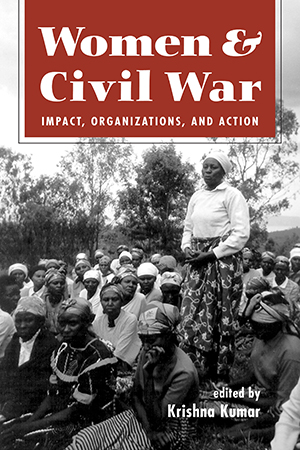Women typically do not remain passive spectators during a war, nor are they always its innocent victims; instead, they frequently take on new roles and responsibilities, participating in military and political struggles and building new networks in order to obtain needed resources for their families. Consequently, while civil war imposes tremendous burdens on women, it often contributes to the redefinition of their traditional roles and the reconfiguration of existing gender relations in the society.
This work presents a detailed analysis of how intrastate conflict affects women, and how women's networks and organizations respond in ways that increase their economic, social, and political power. The authors also consider policy implications for the international community.
Krishna Kumar is senior evaluation adviser in the Office of Foreign Assistance Resources, US Department of State. His recent publications include Rebuilding after Civil War: Critical Areas for International Assistance and Postconflict Elections, Democratization, and International Assistance.
"Successfully bridges the gap between the academic and policy communities regarding the impact of civil war on women and societies as a whole.... Kumar and fellow authors show how opportunity may arise from chaos by identifying the critical role of international organizations in supporting women during and after interstate conflict."—Mary Caprioli, Journal of Peace Research
"An insightful treatment of gender and war. This book is enlightening about both the dramatic changes in women's roles during conflict and the significance of the multipurpose organizations that women have been able to create in difficult circumstances."—Susan Forbes Martin, Executive Director, Institute for the Study of International Migration, Georgetown University
"Women and Civil War presents much-needed, empirical evidence on the impact of war on women's roles and responsibilities in society. [It] will enable both policymakers and practitioners to improve programmes aimed at helping and empowering women and will also be necessary reading for university students in the fields of development studies, conflict studies, and women studies"—Georg E. Frerks, Professor of Disaster Studies, Wageningen University, The Netherlands






